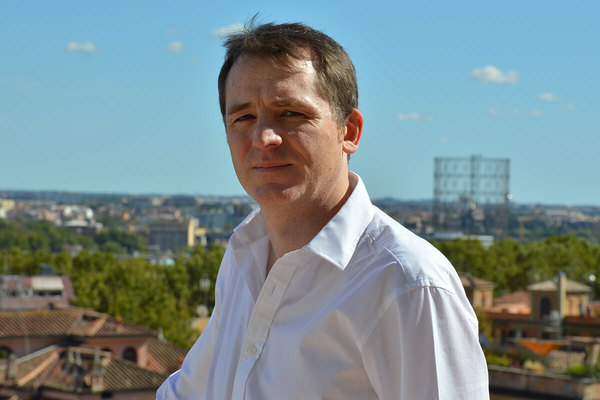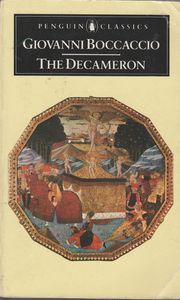
Keough-Naughton Faculty Fellow Barry McCrea is the Donald R. Keough Family Professor of Irish Studies, and Professor of English, Irish Language and Literature, and Romance Languages and Literatures.
Before the COVID-19 pandemic, Professor McCrea was on the Notre Dame campus teaching three courses: Narrative in Fiction and Film; The Modern Novel; and Yeats and Heaney.
He continued with those courses after spring break, when all of the University's classes shifted online. And, Professor McCrea designed and added a fourth class: Literature and Film in Lockdown—this a response to a call by the College of Arts and Letters asking faculty members to suggest and teach one-credit courses for students who were short credits because they were brought back early from study-abroad programs.
Thirty undergraduates were enrolled in the class. They met via Zoom every Friday and, under Professor McCrea's direction, discussed excerpts from Giovanni Boccaccio's The Decameron, the film Rear Window (Alfred Hitchcock, 1954), and Albert Camus' The Plague.
The Literature in Isolation course, as well as scholarship and reflection on the literature of many cultures and eras, is the basis of Professor McCrea's article in the Irish Times on Saturday, May 16.
"Living in Lockdown: Can Literature Help?" The Irish Times, Saturday, May 16
An excerpt:
The simple fact of reading about other people managing pandemic lockdowns – crossing the street to avoid potentially contagious passersby, finding their minds numbed by the weekly statistical bulletins of the fatalities – made us, my students and I, feel, in a general way, less lonely.

More particularly, we found vividly familiar descriptions of one of the most troubling feelings in Covid-19 lockdown: the sense that life has been put on hold. The shock of recognition when reading older accounts of mental life in quarantine prompts an almost exhilarating realisation that this lockdown, weird as it is, is life, too, not an interruption to it, a form of human experience unfamiliar to us in living memory but historically familiar to the species.
Indeed, what stands out most of all across the centuries is the way in which being on indefinite lockdown changes your sense of time. We are used to thinking of the future as a sort of empty, fertile field which we can sow with the seeds of our plans and ambitions and expectations, whether grandiose or modest, fearful or hopeful. During a pandemic, the future is not an expanse opening in front of us, but an impenetrable thicket we cannot enter or see past. The idle, daydreaming mind naturally drifts, whether in hope or fear, towards the future; once the future is out of bounds to the imagination, we need to find somewhere else to send it.